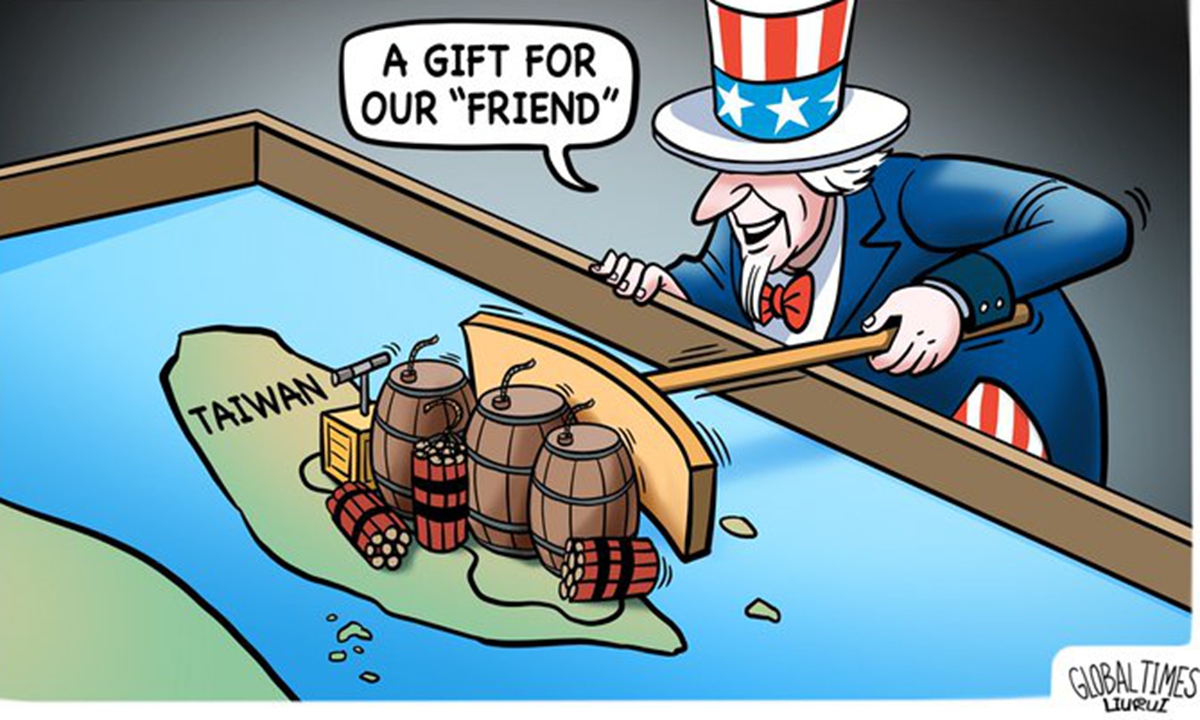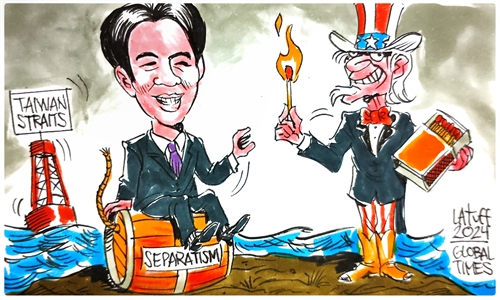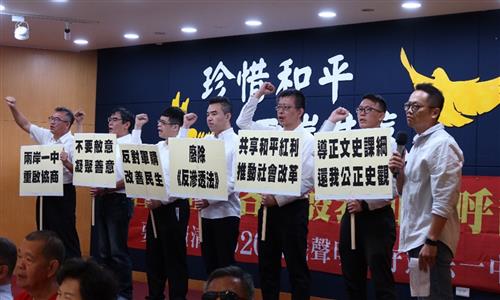
US Taiwan arms sales Illustration: Liu Rui/GT
Adm. Samuel Paparo, the commander of US Indo-Pacific Command, told a columnist of The Washington Post recently that the US has plans to employ thousands of drones if the Chinese mainland launches a military attack on Taiwan.The US' strategy, what Paparo called "Hellscape," is that as soon as Chinese forces begin moving across the 100-mile waterway that separates the mainland and Taiwan, the US military would deploy numerous unmanned submarines, unmanned surface ships and aerial drones to flood the area, in a bid to buy the US time to come to the aid of Taiwan.
The revelation of this "hellscape" strategy came just a few days after the Chinese People's Liberation Army (PLA) conducted a military exercise surrounding the island of Taiwan in a move aiming to punish "Taiwan independence" secessionist forces and to send a warning to external interference forces following Taiwan regional leader Lai Ching-te's separatist inaugural speech on May 20. Experts believe the exercises display the PLA's strike capability across all directions of the island without any blind spots, forming a situation where the island is pinned down from both the east and the west.
Wang Yunfei, a naval expert and retired PLA Navy officer, told the Global Times that the US has realized that the conventional mode of combat cannot secure the US a victory over the PLA in the Taiwan Straits, therefore it resorts to such an unprecedented war situation as the so-called Hellscape to thwart the PLA. However, it is just wishful thinking, said Wang.
Wang said the US has the most advanced military technology and the largest fleet of military drones in the world and the overall military strength of the US is superior to that of the PLA. Nonetheless, the US advantages in the Taiwan Straits cannot be fully brought into play. For instance, Wang said if the US sends its aircraft carriers to the region, the PLA can use its anti-ship ballistic missiles to keep US aircraft carriers out of the first island chain. Also, the US needs command platforms to command its thousands of unmanned weapon. The PLA has the ability to pin down these platforms or jam the signal.
Zhang Hua, a research fellow at the Institute of Taiwan Studies of the Chinese Academy of Social Sciences, also questions if the US has the ability to produce such a large quantity of unmanned ships and drones.
Washington is obsessed with the year 2027, when it believes the Chinese mainland will "invade" Taiwan. Zhang told the Global Times that the aim is to instigate anti-China forces within the US as well as embolden secessionist forces on the island of Taiwan. The revelation of this "hellscape" strategy is just a coordination of this hype. "My job is to ensure that between now and 2027 and beyond, the US military and the allies are capable of prevailing," Paparo was quoted by The Washington Post as saying.
The DPP authorities take it as an "encouragement," from where they see hope and believe they could wantonly engage in their secessionist behaviors. For Washington, it is "instigating" Taiwan authorities to continue to act as the chess piece for it to contain China. The "hellscape" strategy is a plan to hurt and even destroy Taiwan, said Zhang.
US President Joe Biden has said on several occasions that the US would defend Taiwan in the event of an attack by mainland. Although the US has the tendency to turn from "strategic ambiguity" to "strategic clarity," it does not mean the US does not leave room for maneuvering in this matter. In the most recent interview with the Time magazine, Biden said he was "not ruling out using US military force." He noted "a distinction between deploying on the ground, air power and naval power," but said the response "would depend on the circumstances." This shows the nature of the US in the Taiwan question: ferocious in appearance but feeble in essence.
The Taiwan question is China's internal affair, and China will strive to achieve reunification through peaceful means. However, if the "Taiwan independence" forces sabotage peace in the Straits, then the US must know that it needs to accept China's way of handling it. Actually, that is its only option.


